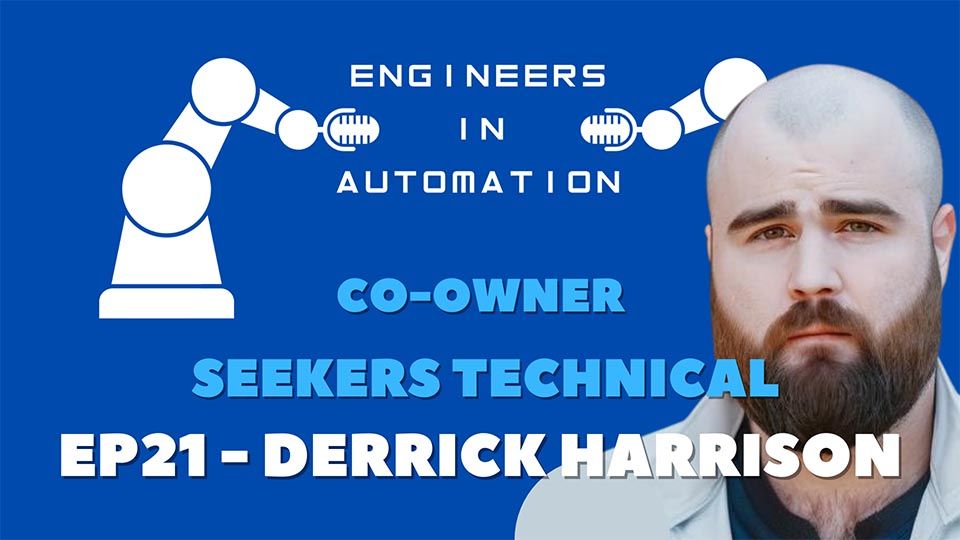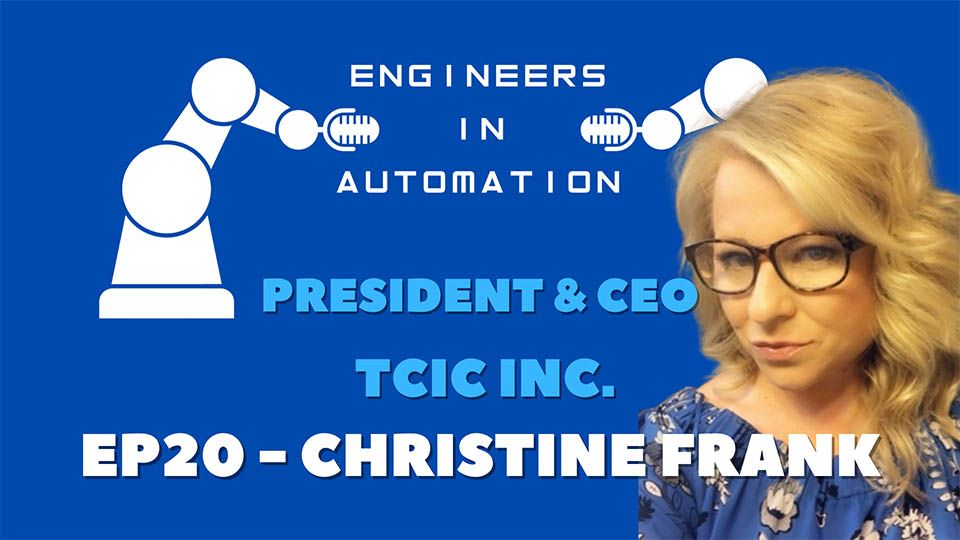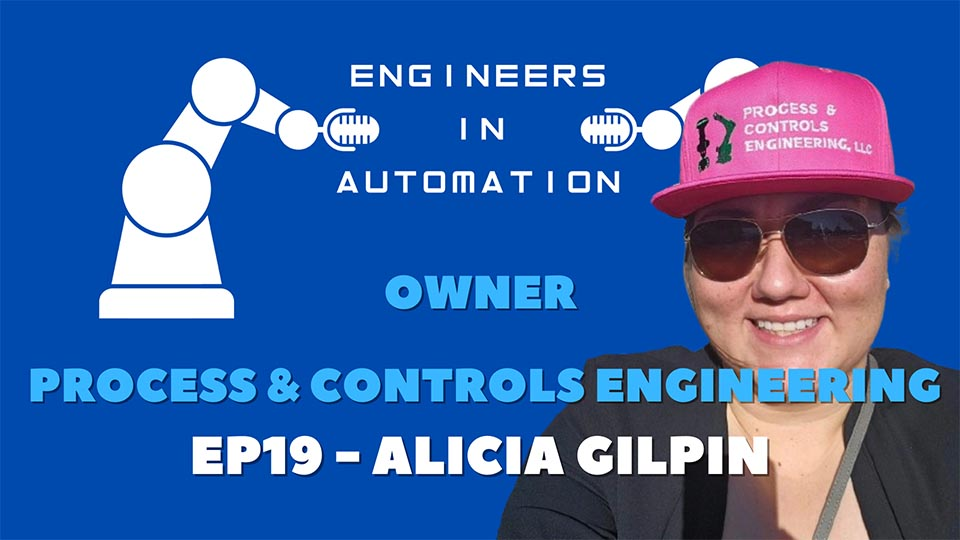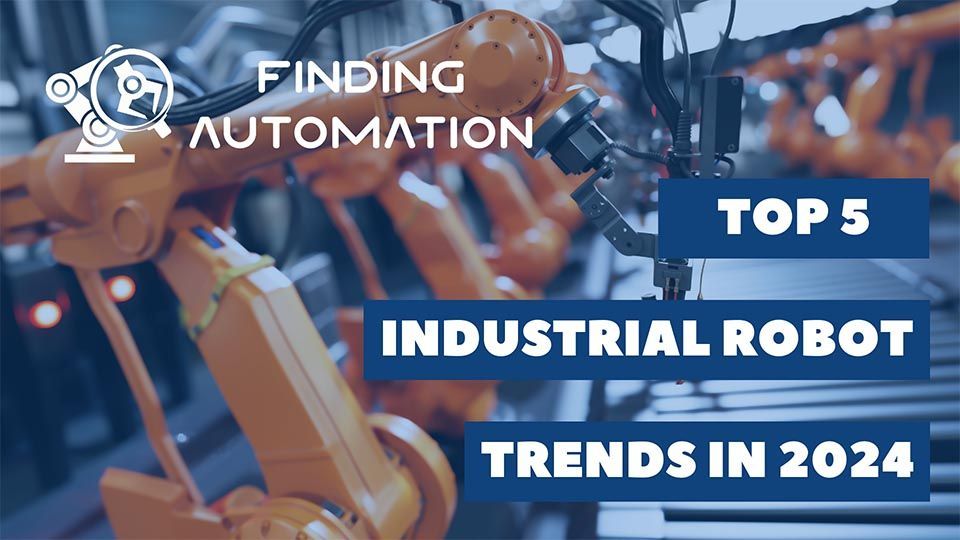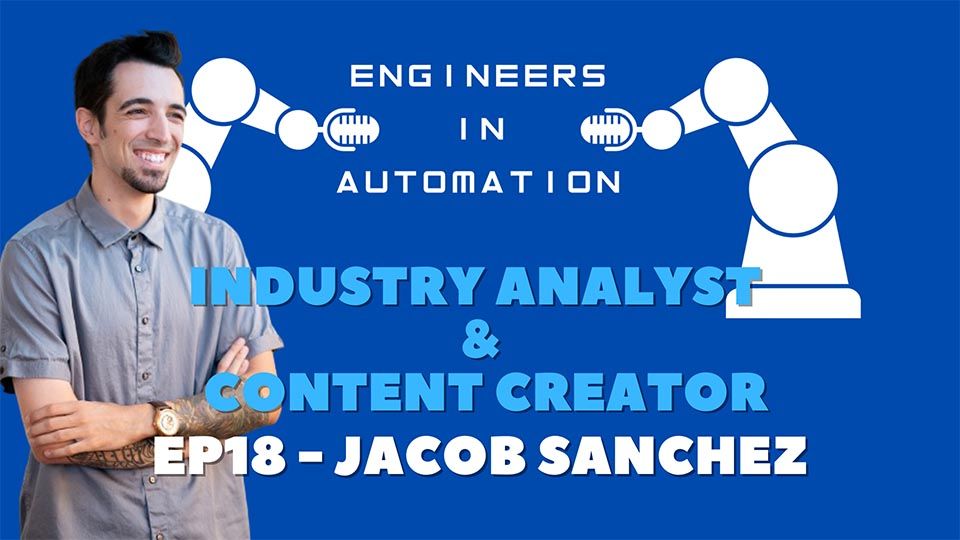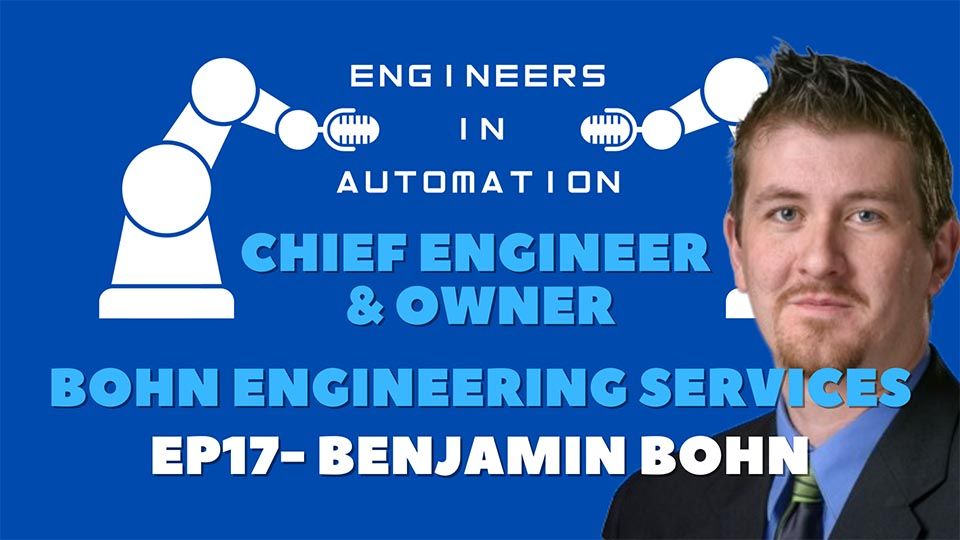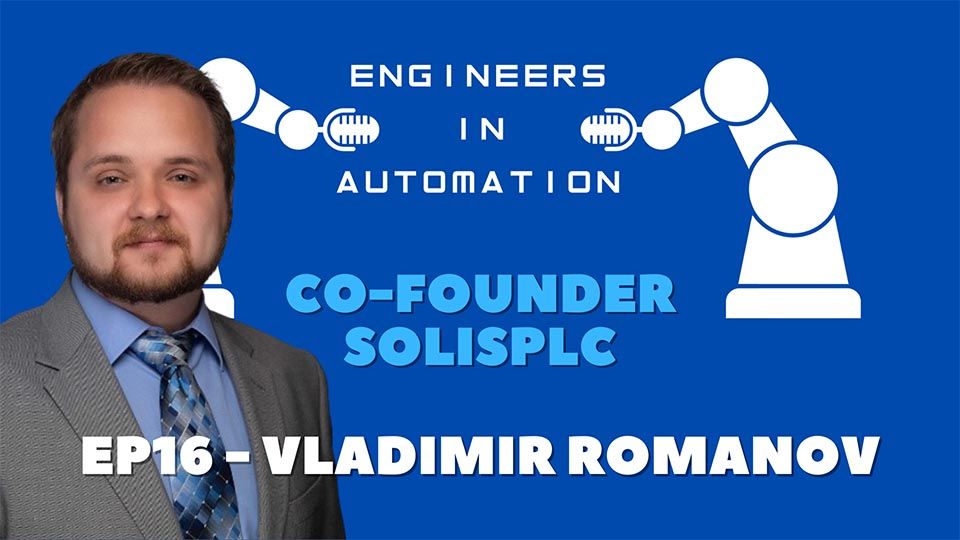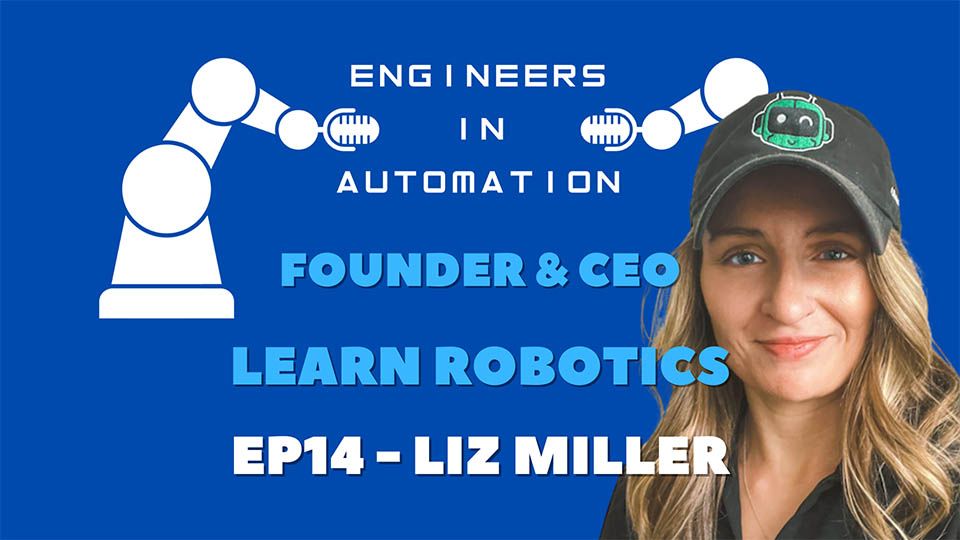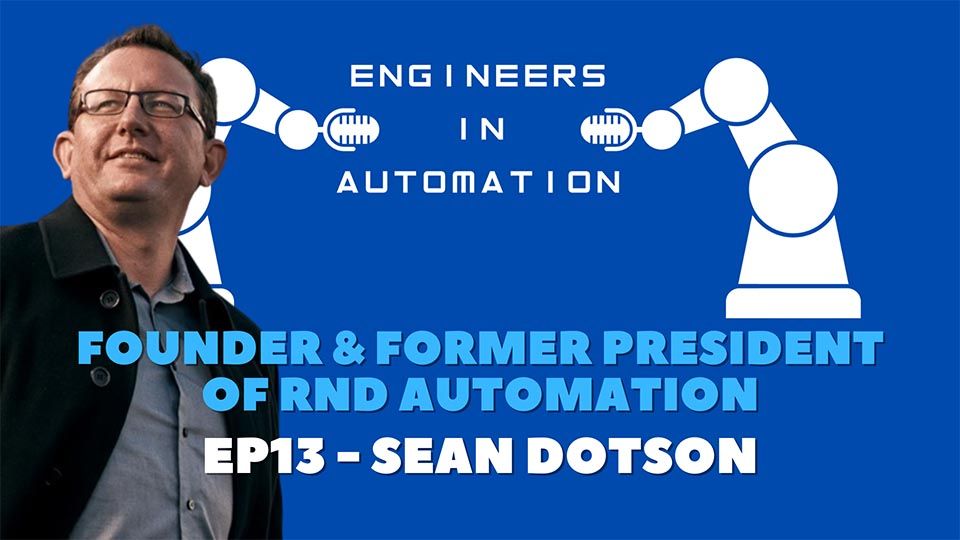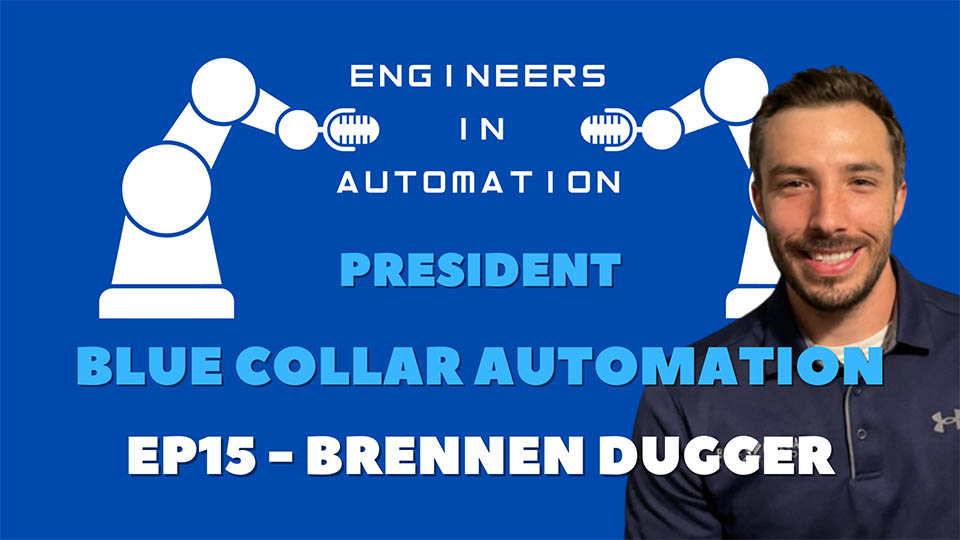Keegan Dillon – Host (KD):
Hi, my name is Keegan, I'm the founder of JOINER Services, and this is
Engineers in Automation. In today’s episode, we’re going to talk with Travis Weber, of Lincoln Electric. He's a sales engineer and weld engineer for them. And we're going to talk about his role within the automation industry. Now let's go talk automation.
KD: All right, and we're back. And we're here today with Travis Weber, wealth engineer, Sales Engineer for Lincoln Electric. Travis, how are you doing?
Travis Weber – Guest (TW): I'm good, man. How are you?
KD: Good. Thanks for coming on today. Could you give us a little bit of background about yourself?
TW: Yeah, so I'm a technical wrap weld engineer, Sales Engineer for Lincoln Electric in southwest Ohio, southeast Indiana, and Northern Kentucky. I’ve been with the company going on nine years and have covered a couple of different territories across the country. And previous to that I was an intern at John Deere and Case IH prior to that. And then, like you kind of got started at Ferris State up in Big Rapids, Michigan. You know, it's just been writing the story ever since.
KD: Great. And then, how did you get into welding? Right? What drew you to Ferris State? How did you jump into this industry?
TW: So, the thing that drew me to industry or to welding, excuse me, is I grew up on a farm. And so when things break, right, it's all steel. It's heavy steel. And it's got to be welded back together and watching my dad and grandpa weld. I was like, “Man, that's, that's kind of cool.” Right? So next thing you know, they're like, “well, you try and see what you think.” Right? So, I really enjoyed it. And in Traverse City, Michigan, where I grew up, there was a Traverse Bay Area Career Tech Center, and they had a two-year high school welding program.
So, it started there. And my welding instructor was extremely supportive. I actually worked for him in the evenings at his own shop. And he was like, “Look, man, you know, what do you want to do with welding?” And as a 17-year-old kid, 18-year-old kid, I didn't know. But he's like, “Well, there's this school south to here, like two hours, and they have a welding engineering program. You should check it out.”
KD: Wow, that path that you just described sounds so similar to mine, I had the same sort of experience with a professor, or I guess, a teacher from high school that kind of pushed me towards the welding program. And, yeah, it changed my life for the better.
TW: Absolutely, yeah, I was lost, right? I wasn't a big fan of school, you know, like, like, most guys in the trades, I want to work with their hands. And, you know, he was like, “Look, you, you got a good head on your shoulders, like maybe, maybe push it to the next level.” And I'm easily goaded into things like, hey, let's push it to the next level. And in this instance, the next level was college. He's like, “Look, just because you go for a semester doesn't mean you have to commit for four years or even like the two-year Welding Technology Program.” He's like, “just go try it out. If it's not for you, you gain some life experience. And then you can come back and restart in a different direction.” So, by the time the first semester was over, I wasn't coming home. Right. I was ready to go the distance.
KD: Yeah, great! And then how did you kind of, after graduation, then move into industrial automation? How did you get into this industry?
TW: So, when I came to Lincoln, you know, we're part of my role is really anything that has a Lincoln Electric sticker on it, for the most part. So that's safety gear, that's welding equipment, that's welding consumables, MIG TIG stick flux, core sub, our plasma cutting, automation, semi-automatic handheld heart automation. And, you know, over time, I just have developed more of an interest in the automated side. Whether it's, you know, robotic automation, or some sort of mechanized, you know, hard automation. But I think that that's something that I enjoy.
And, you know, as, as the world kind of continues to change, I think that that's something we're going to rely on more and more, and not just in the welding world, but in all aspects, material handling, you know, we keep seeing these new stories about automated vehicles, right, self-driving cars, self-driving trucks. I think automation is kind of the way of the future. And it happens that I enjoy automation. And so, why not just keep pushing in that direction? To see what I come up with?
KD: Absolutely. And then, what are some of your day-to-day automation projects that you're working on?
TW: So, we're automation is concerned, and it's not every day, but we're automation is concerned. A lot of it is working with our quote team, you know, to find or to get a quote, put together for an end user that I've been working with, that's like, hey, you know, we were short on people. Our production volumes are increasing. Whatever, like, hey, is automation a viable solution? Yep, it is. So, let's talk about it. Let's figure out do you need a back-to-back? Do you need a side-by-side? Do you need a single-arm dual arm? headstock, tailstock, Ferris wheel, H-frame, you know, what is it that you need?
Then get with our quoting team, get the quote, put it together, get it over to the end user, and then get, you know, kind of the next step is to get some of their parts may be sent up to our lab. Weld those parts out, you know, prove it out that we can do it, get some cycle time estimates and things like that. Let them, you know, for first-time automation users, let them do destructive testing, nondestructive testing, cutting etch, whatever they need to do to say,” Yeah, this is good,” as the parts that my guys or my gals are making.
So that's part of what I do on the sales side, but then on the supporting side. And I'm by no means an expert, but I'm not afraid to grab a teach pendant and make adjustments, right, whether it's, you know, reprogramming positions, or which, and I'm not an automation expert, I would say that I'm more of a welding expert.
So, if I can get paired with one of the automation specialists at wherever it is, you know, they can kind of handle some of the robot manipulation. And then I, I handled that magic red box, kind of on the back of the robot that's handling the weld. So it's probably two days a week part of my responsibility right now and hoping in the future to make that a five-day-a-week, kind of a full responsibility and leave some of the other stuff buying.
KD: Yeah, absolutely. That kind of leads into my next question is, you know, being responsible for that red box there. I'm sure. And I noticed on your LinkedIn that you're doing a lot of weld training as well. Can you kind of talk to us about that? You know, how do you get involved with that? If that is something that you're interested in? Are you doing it for your customers? Can you just describe a little bit about the training?
TW: Yeah, so I mean, it's something that we support, right, as part of our product offering as part of our value add. And, you know, I've got a welding background. I’ve been in and out of the industry. And then, of course, have the Lincoln background, so I can support those products that have that red box with the Lincoln sticker on the side. You know, my goal is to be able to take the end user, whomever it may be, whether it's yourself or you know, Joe's fab shop, or, or, you know, big-time automotive supplier XYZ, right?
But you want to be able to make them successful, right? So, one of the things is because they've got 100 things going on, right, that they're responsible for. But if I can take some of my time to teach them, you know more about the welding process, the equipment that they're using, you know, the different wires, right? Why 035 versus 045? Or maybe 045 versus 035?
You know, and I had somebody one time ask me like, well, what if you train yourself out of a job? First off, I highly doubt that that's going to happen. Because while you know people learn from training, they're probably never going to become proficient enough that they don't ever reach out for help. Yeah. So, it's actually something that I enjoy. And that moment when you're working with somebody, and you're explaining things, and all of a sudden, you see the light bulb? Come on, right? It's very fulfilling.
KD: And it's only going to, yeah, it's only going to help you too right? I mean, the more that your clients know about your system, the better it is for you that you can make that quick call to remember, during this part of the class, you need to do this right.
TW: Yeah, absolutely.
KD: They're your biggest allies. I would think, you know, once you train them well,
TW: yeah, I mean, from a, from a sales and engineering standpoint, right? If they're happy with the product they have, they know the ins and outs of it. They know that they're getting good support when they need it, and why, you know, why to consider other options or why, and not that they shouldn't, but why would you, you know, take a hard look at somebody else if you're happy with what you've got.
KD: Yep. Great point. So, on that note, then, can you tell me a couple of the things that you really like about the industrial automation industry?
TW: Man, this sounds super childish, but right off the gate, I just think robots are cool. I mean, you're looking at a piece of steel, kind of sat there with a bunch of servos attached to it, and you're holding the teach pendant that's not much bigger than some of today's cell phones, and you can make that thing, do whatever you want it to do within the limits of that machine. But repeatability is right. It does the same thing over and over again. And it does it at a speed that we as humans can't. We have no way to be able to do that. And it's just such an again, Cool thing. And I also like the need. Maybe neatness is the right word, right?
But, you know, you get a robot cell setup. It doesn't need all these extra things, right? It's taking parts in giving you parts out. You know, it's just very streamlined. It’s very efficient. Typically, it's set up the right process. And, you know, the engineer and me mixed with a little bit of OCD, really like that kind of streamlined process, and therefore I enjoy, you know, spending the time with the automation side.
KD: Absolutely. And I always kind of relate it to my friends who aren't in the industry. It’s almost like you get to program robots is similar to, like, playing video games, right? You get to go. You are almost building Legos. And it's with video games. And that's, like, the easiest way to explain to somebody that's not in the industry. Oh, look, I get to build these things. And then I also get to kind of play around with this teach pendant. The robot does stuff that I tell it to do. And yeah, it's really fun.
TW: Yeah. And again, I just go back to being like a little kid. Man, I think it's cool to see those. See them in their natural element. Right.
KD: Yeah, absolutely. And then, with that, what are some things you change about the industry and the automation industry?
TW: Oh, man, that's a good one. You know, there's a ton of people that I've met with over the years, and we've talked about automation every year for three or four or five years. And they're like, “well, I just don't know.”
KD: A hesitancy.
TW: Yeah, a hesitancy, and look at automation is not inexpensive, right? You have to shell out a bunch of money upfront, but typically, there's an ROI. If there's not an ROI, you probably shouldn't be buying automation unless you just got more money than you know what to do it. But typically, there's an ROI. I wish that more people would. When they see the ROI, right, they've had parts welded out, and they know that an automated system can do what they want. I wish they would take that leap of faith because I think, inevitably, it would help their business.
Right, because it frees up people for other responsibilities. It allows faster production of the parts you're already making, right? And, typically, once you get one in and kind of get accustomed to it, then you start thinking, you're like, wow, we can put this on there. Or we can put this on there. Or we can do this with it. Or, hey, if we had a little bit bigger system, or instead of a headstock, tailstock, if we had, you know, in a tray where we could be loading and unloading, I mean, it just continues to grow, and their mind starts to change more and more, and they focused on that automation, and how it can help their business be more profitable.
So, if more people would just be willing to, assuming everything checks out, the ROI, is there, the funds are there. Yeah, if they were willing to pull the trigger. That’s what I would like to see changed within the industry
KD: And with that, too. Have you seen some changes from like your typical standard industrial-size robot, maybe cobots? Have you seen much of that?
TW: Yeah. And I think there are two driving factors that are a cobot is a significantly smaller investment. So, it's a little easier to stomach, especially if you're a small, maybe medium-sized welding shop, you know, 80 to 100 grands a lot easier to bite often than 180 to 200,000. Right? Some of I know that you've done robot programming, and probably a lot of folks are watching this, but you know, you get into some of the back menus. And all of a sudden, you can get very, very, very lost if you hit the wrong button. Then you're calling somebody like me or somebody with, you know, more expertise going.
Hey, and I'm just going to use this as an example. I had a customer that somehow got into their I/Os and turned the anti-spatter spray on. So anytime they touched the deadman switch or hit cycle start, the anti-spatter will just spray uncontrollably, right? So, you know, cobots have helped simplify that a lot. A lot of touch-to-teach. The cobot that I have here and basin for demos for exploratory use, a lot of drag and drop, right? It's basically a Samsung tablet, and you take whatever move. is it a weld move? Is that an air move? Is it a joint move versus linear? Is it an arc start and arc? Is it a circular move? Right? And you just drag and drop as you create your program, and then you physically grab your arm and move it to wherever it is that you want it?
So, you still need that teach pendant for the overall control, but you're not driving it, right? You can physically manipulate that arm to whatever position you need to get into a groove or to do fillet or whatever. So, I think it's helping simplify things. And I think that the cost, the lower cost is much more appealing to some of the smaller facilities.
KD: And are you seeing some of the same repeat abilities you'd see with your standard industrial-sized?
TW: Yeah, again, the only little asterisk there, right? A lot of times with industrial automation or dedicated automation cells, you've got a $150,000 robot, and then maybe you've got 20 or $25,000 in the tooling, or maybe more, right? Depending on how complex your tooling is. On a cobot, maybe you've got a little bit less intricate fixture. And as long as your fixture is as good as the parts you're feeding in, it's not an issue.
KD: Good. And then what are some of the maybe have you seen some lightweight materials come into play a little bit more? I know, there's a lot of, you know, regulations now regarding co2 emissions for vehicle and gas mileage. Have you seen a lot of new materials for light weighting purposes?
TW: Um, yeah. And I'm, again, as we move forward, I'm hoping to get more into some of that. So, I've got some limited experience. But, you know, it's crazy to think of, you know, the thickness, and before I started working in the automotive industry, you start thinking about a car frame, and you're like, man, what the chassis is made out of? Like, a 1/4 inch, right? No, and then now that I'm in this industry, I don't know that there's hardly anything on my truck that's sitting in the garage that's a 1/4 inch, at least not in thickness.
And yeah, obviously, with internal combustion, right, gas or diesel engines. Light weighting is a big deal, trying to get the miles per gallon up. But now, with all of the regulations and the way things are going with these battery vehicles, these electric vehicles. You have things like regenerative braking. Well, you need weight to help with regenerative braking.
So, we're at a point where I think the industry will start to split a little bit, and you're going to have folks still working on light weighting. How do we get a Ford pickup truck to 30 miles a gallon? Can we get the weight down more but then, on the other hand, you're going to have folks that are that or maybe not trying to add weight, but they're not really interested in light weighting either because they need that weight for the benefits of the electric vehicle.
KD: Yeah, that's a great point. Yeah, a lot of people aren't thinking about that. That's a really good point. So yeah. So, another question I've got is everyone has some mistakes. What kind of mistakes have you run into? How do you fix it? How do you overcome it? Or do you have any current issues that you can talk about?
TW: Well, I would love to tell you that I don't make mistakes and that I can't answer your question. But that would probably be a lie. There's not, and there's not any that stick out. I will say when I was first getting into automation, it wasn't maybe so much a mistake as a bluff, right? I told the guy, “Well, I can do anything with this robot you need done.”
Some time went back and forth. And you know, we've been working together, and he was like, “Alright, well, here's what I need.” And I was just like, “oh, well, I can't do that.” But I didn't want to let him know I wasn't capable. So, you know, basically, earbuds in teach pendant in hand, working through it. And there were some complexities that needed more than just a walkthrough. I needed somebody there that had some skills.
So, I actually told the guy like, “Hey, I've got a kind of an emergency. I got to go take care of something, I'll come back in a couple of days, and we'll get this figured out.” And so, I brought a guy in with me to fix the situation. And I started to tell the guy was like, “hey, like, he's one of our trainees. Like, I'm just showing him the ropes.” And it very quickly became obvious that the guy was not a trainee. He was bailing me out, and the guy called me out and was like, “Look, man, like, if you didn't know, you know, you should have just told me.”
KD: That was a good strategy, though. I mean, but you know, knowing that you couldn't do it yourself, that you needed help and realizing that quickly letting the customer know though and coming back, so I still like how you resolved it, you know, maybe could have been done a little bit differently, but no, still got the results that you need it, so that's good.
TW: It was very humbling, right? Because I was like, well, I could do this right. It's not a big deal. And then that I couldn't do it. And I needed help. And thankfully, there were good people on my team that were able to help me out and take care of what needed to be taken care of. But you know, I went from Yeah, I can do that. That's no problem too. Let’s take a look at it kind of mentality and never really saying right out of the gate, yes, that's no problem because things come up.
Even in the automation world where everything is very regimented, like that robot when you hit that cycle start button, it should be doing the exact same thing. It's done for the last 40,000 cycles, but things happen, right? Somebody got in there to change a weld parameter and deleted a line in your program. And now it tries to go, you know, there's a fixture here that robots welding here, this is the air move. Next thing, you know, you got a broken neck, there's water going everywhere, and you're like, “Oh, something went wrong.”
KD: I’ve seen that one too many times. Um, great analogy there. I guess another great question that I always like to ask is, you know, especially somebody like yourself that has been in the industry now for over 10 years and has all this knowledge. Where do you go to learn? You know, we're constantly learning in the industry, but as you know, is there somewhere you go to learn more about welding, more about automation? You know, where do you go to learn?
TW: And the guys I'm going to reference here, I'm going to call them gray hairs. And they're gonna get mad at me for that because they're not much older than I am, but they do have a few more gray hairs. And, honestly, you know, YouTube's a great reference, and there's, you know, videos out there. And certainly, you can call the corporate offices, of all the major automation companies.
But there are guys in the industry that have so much knowledge because they've done so much. Basically, you know, keep those guys on speed dial. I reach out on a regular basis, and I'm proud to say that it's becoming less and less frequent right as I absorb some of that knowledge. But, you know, they've seen it, and they've done it, and they've tried it. I mean, they've got more years working with automation than I have in the industry. So, you know, , their knowledge level is so high. It's just like, man. And so, it builds the relationship, right? Like those guys, initially, were business partners or co-workers, and they become friends, right?
One of the guys that I rely on pretty regularly. You know he and I had talked, he's a hunter, I'm a hunter, and we talked about hunting for a long time. And he and I actually ended up going to Montana elk hunting last year. So, you never know, of those guys, in those relationships that you use on a professional level? How's that going to be? What will that do to your personal life, either? But there are truly resources everywhere. And there's always good people who want to teach the younger generations myself, and you know, even high school students and college students now that will teach you more about their craft and the things they do.
KD: That's great. And then, just to wrap up here, do you have any words of inspiration? You know, is there anything that you can kind of wrap up this interview with? Any leadership advice?
TW: Well, I'm probably not qualified to give leadership advice. But you know, words of encouragement are, if you're interested in automation, just get out there and do it. Right. If you're a young professional or a student and it interests you go get on YouTube, learn more about it, talk to your local career tech, or your local vocational school or, you know, skilled trades facilities, and say, “Hey, what kind of automation programs do you have?”
If you don't want to go the education route, get into a facility that has automation and say, hey, I want to start whatever role you need, but my real interest is that robot that's over there in the corner. So, can we put together some sort of plan where in a year, six months, or whatever the timeframe is that I'm doing more with that and grow your skills from there? I've got several large automotive customers that have kind of their own apprenticeship program for their robot techs. And you're gonna learn robots. You’re going to learn industrial automation and you’re going to learn PLCs, you're going to learn programming, welding, and everything in between. Oh, and by the way, we’ll pay you pretty darn good money while you do.
You know, I think, and where I grew up in northern Michigan, we didn't have a lot of that. I think had I known about that or been, you know, that had been more readily available, I probably would have gone that route over, you know, going to Ferris, and not that I regret going to Ferris, just I know what my mindset was at that time and that that, you know, paid apprenticeship program would have spoken to me in volumes. So, you know, my advice is where automation is concerned is just go get it. There's, there are so many opportunities in automation right now, not only related to welding but in all aspects. Go get them.
KD: Great advice. Great advice. And let me ask, where can people find you? Where can they follow you?
TW: Pretty much. I'm a LinkedIn guy. I like the professionalism, I guess, of the LinkedIn platform. That's kind of where I hang out.
KD: Okay, awesome. Well, thanks. Thanks for being on, and we hope that all the guests today enjoyed the show. So, give us a like and comment a share, and don't forget to subscribe. And we look forward to having you join us next time here on
Engineers in Automation. Thanks
If you enjoyed that episode, get more information below!
